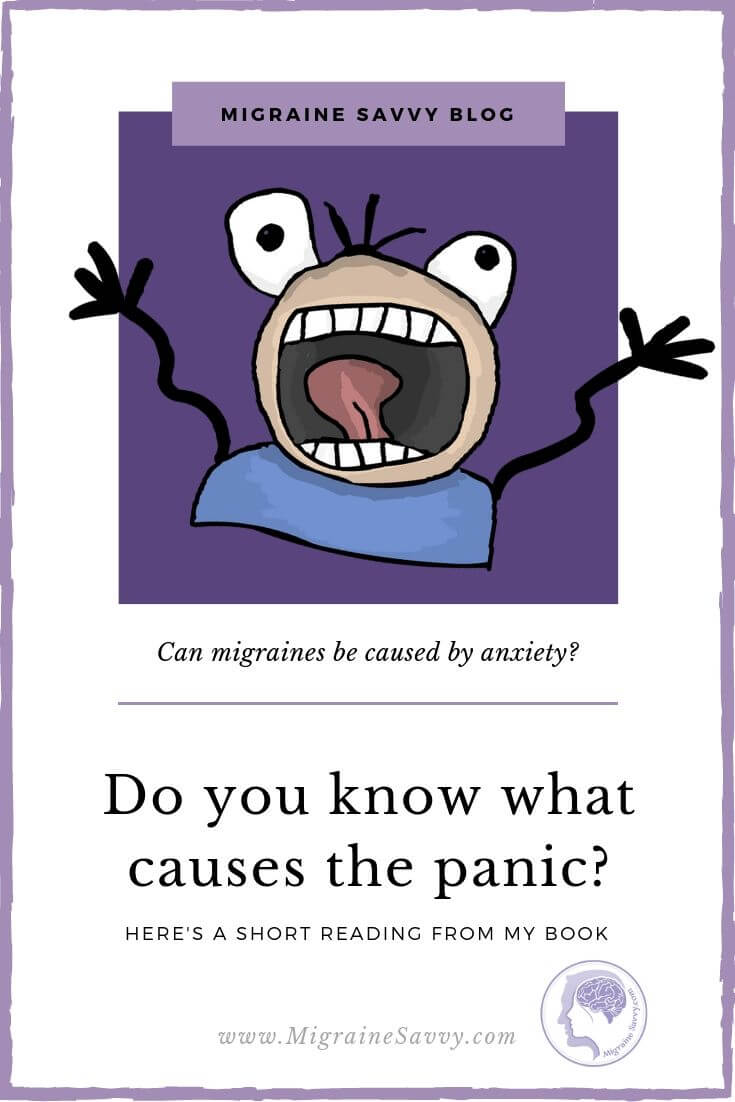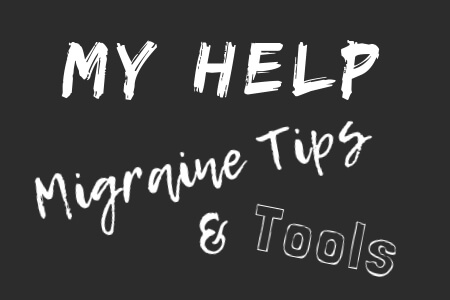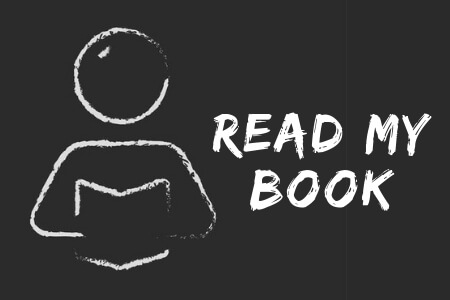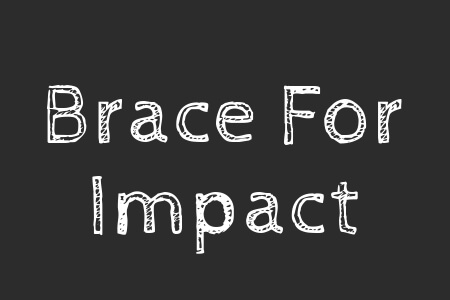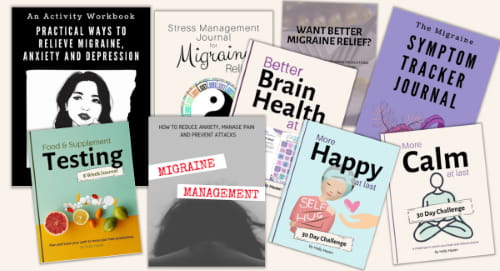- Home
- Migraine Help
- Can Migraines Be Caused By Anxiety
Can migraines be caused by anxiety?
Can migraines be caused by anxiety? That's a tricky question. Causes and triggers are different things... so no, technically anxiety does not cause a migraine, but here’s where it gets complicated… it can trigger an attack and be a part of the attack. I've written more on this below to help you understand why.
Here's a short video I recorded from my book Migraine Management (page 9 - 11) to help you understand why you might feel anxiety and panic before an attack.
The Difference Between Causes and Triggers
Migraine causes are very complex. The current theory says that chemical reactions and hormones, such as serotonin and estrogen, play a role in pain sensitivity and it involves the brain and the blood vessels surrounding the brain and head.
Under certain conditions the brain can become hyperactive. This hyperactivity sets off a series of chemical reactions that irritate the nerves, causing them to send out pain signals throughout the head.
This in turn causes the blood vessels to expand, which makes them release even more chemicals, further irritating the nerves.
Certain conditions believed to start this chemical reaction and contribute to the onset of a migraine attack is the trigger. This can include any combination of triggers… one being anxiety.
Where it gets even more complicated is when anxiety, or the adrenaline rush the body has in preparation for the threat of an attack becomes apparent to us… as we… well… panic. So anxiety is part of the entire process.
So, can migraines be caused by anxiety? No, not caused but definitely triggered.
Here's the recorded part from my video above to help you understand the process in the body.
You can order my book on Amazon right now...
1.1 What Stress Is: The Physical Reactions Defined
When you understand the biological chain of events of the stress reaction in the body, you can:
1. Differentiate this from your normal migraine symptoms
2. Or be more aware of it as a migraine symptom
Physiologically, the stress response is governed subconsciously by the autonomic nervous system (ANS).
"The nervous system has two separate actions: voluntary and involuntary" (Bourne, 2000, pp. 36-37). The voluntary part "moves your muscles and obeys your direct command. Your involuntary nervous system, on the other hand, regulates automatic functions ordinarily outside voluntary control, such as your heartbeat, respiration, and digestion.
This involuntary system is itself divided into two branches: the sympathetic and parasympathetic nervous system." The sympathetic system mobilizes several reactions in your body when you are emotional or excited, and the parasympathetic system "maintains normal, smooth functioning of your various internal organs during times when you are calm and at rest" (ibid.).
It is the sympathetic nervous system that sets off several rapid and intense bodily reactions simultaneously in a panic attack. I’m using panic attacks as an example to illustrate my point because the same reactions occur in the body to a lesser degree when you’re emotional or stressed. And even before you sense a migraine coming on, the body is preparing for the threat.
This is why you might experience a low-grade panic attack before a migraine. Identifying that adrenaline rush is an important early warning signal.
So, the sympathetic nervous system sets off a reaction and it "causes your adrenal glands to release large amounts of adrenaline" (ibid.). You may feel the sudden jolt with an accompanying "feeling of dread and terror." It is not in your imagination! A lower level stress does this in the body too.
And what’s next?
"Within seconds, the excess adrenaline can cause:
1) your heart to race,
2) your respiration to become rapid and shallow,
3) profuse sweating,
4) trembling and shaking, and
5) cold hands and feet." (ibid.).
Your sympathetic nervous system also produces muscle contractions. This is the freeze part of the 'fight or flight' response. It can lead you to experience strong contractions in your chest or throat, and to feel like you can't breathe.
"Other reactions caused by the sympathetic nervous system include the excess release of stomach acid, inhibition of digestion, release of red blood cells by the spleen, release of stored-up sugar by the liver, increase in metabolic rate, and dilation of the pupils." (ibid.).
When I first read this years ago, I instantly thought: migraine attack. You may or may not be aware when you’re experiencing an extreme flush of adrenaline. But even if you’re not consciously aware of it, your body certainly is! Your body prepares for each attack and this places stress on the body.
On a smaller level the hypothalamic − pituitary − adrenal gland (also known as the HPA axis) controls the stress response. The hypothalamus, in the brain, regulates basic bodily functions like: stress, body temperature, hunger, sleep and sex. It releases a hormone called corticotrophin when it perceives stress in our environment.
This hormone sends a signal to the pituitary gland to release adrenocorticotropic hormone (ACTH), which flows through the bloodstream to the adrenal glands. This hormone "stimulates the adrenals to release the two major stress hormones, adrenaline and cortisol" (Walton, 2010).
I’m sure you’ve heard of adrenaline and cortisol by now. These are the hormones responsible for creating the 'fight or flight' response. So, some stress is normal and ok, and most importantly - your body should return to normal after the threat has passed. It’s when you’re perpetually in a state of 'fight or flight' that it can be problematic.
Having to deal with your migraines (a chronic condition) and your current life situations could be setting you up for daily stressors that trigger these hormones.
Answering the question - can migraines be caused by anxiety, is an excerpt from my book Migraine Management: How To Reduce Anxiety, Manage Pain and Prevent Attacks
Can migraines be caused by anxiety?
So, can migraines be caused by anxiety? What have you experienced?
MY PROFESSIONAL HELP & SUPPORT Related Articles
Ready to take the next step?
Choose the next step that fits where you are right now.


